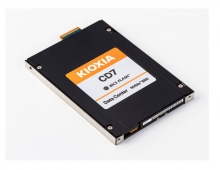
HP webOS Goes Open Source
Hewlett Packard has decided to open its webOS mobile operating system to developers and companies, potentially taking on Google's Android platform.
HP plans to continue to be active in the development and support of webOS. By combining the webOS platform with the development power of the open source community, HP believes that there is the opportunity to improve applications and web services for the next generation of devices.
For developers, WebOS applications can be easily built using standard web technologies. In addition, its single integrated stack offers multiplatform portability. For device manufacturers, the WebOS provides a single web-centric platform to run across multiple devices.
"webOS is the only platform designed from the ground up to be mobile, cloud-connected and scalable," said Meg Whitman, HP president and chief executive officer. "By contributing this innovation, HP unleashes the creativity of the open source community to advance a new generation of applications and devices."
HP will make the underlying code of webOS available under an open source license. Developers, partners, HP engineers and other hardware manufacturers can deliver ongoing enhancements and new versions into the marketplace.
HP plans to support the WebOS open source project by as an active participant and investor, while it will provide transparent and inclusive governance to avoid fragmentation.
HP also will contribute ENYO, the application framework for webOS, to the community in the near future along with a plan for the remaining components of the user space.
Beginning today, developers and customers are able to provide input and suggestions at http://developer.palm.com/blog/.
HP acquired webOS in a $1.2 billion purchase of Palm in 2010. Since then, the company had been trying to figure out how to recoup its investment after a failed foray into the smartphone and tablet market.
The future of webOS had been in limbo since August after HP killed its flagship webOS-based TouchPad tablet following poor sales.
HP Chief Executive Meg Whitman said HP may get back into the consumer tablet market in 2013 but it will not be making any more smartphones.
For developers, WebOS applications can be easily built using standard web technologies. In addition, its single integrated stack offers multiplatform portability. For device manufacturers, the WebOS provides a single web-centric platform to run across multiple devices.
"webOS is the only platform designed from the ground up to be mobile, cloud-connected and scalable," said Meg Whitman, HP president and chief executive officer. "By contributing this innovation, HP unleashes the creativity of the open source community to advance a new generation of applications and devices."
HP will make the underlying code of webOS available under an open source license. Developers, partners, HP engineers and other hardware manufacturers can deliver ongoing enhancements and new versions into the marketplace.
HP plans to support the WebOS open source project by as an active participant and investor, while it will provide transparent and inclusive governance to avoid fragmentation.
HP also will contribute ENYO, the application framework for webOS, to the community in the near future along with a plan for the remaining components of the user space.
Beginning today, developers and customers are able to provide input and suggestions at http://developer.palm.com/blog/.
HP acquired webOS in a $1.2 billion purchase of Palm in 2010. Since then, the company had been trying to figure out how to recoup its investment after a failed foray into the smartphone and tablet market.
The future of webOS had been in limbo since August after HP killed its flagship webOS-based TouchPad tablet following poor sales.
HP Chief Executive Meg Whitman said HP may get back into the consumer tablet market in 2013 but it will not be making any more smartphones.





















